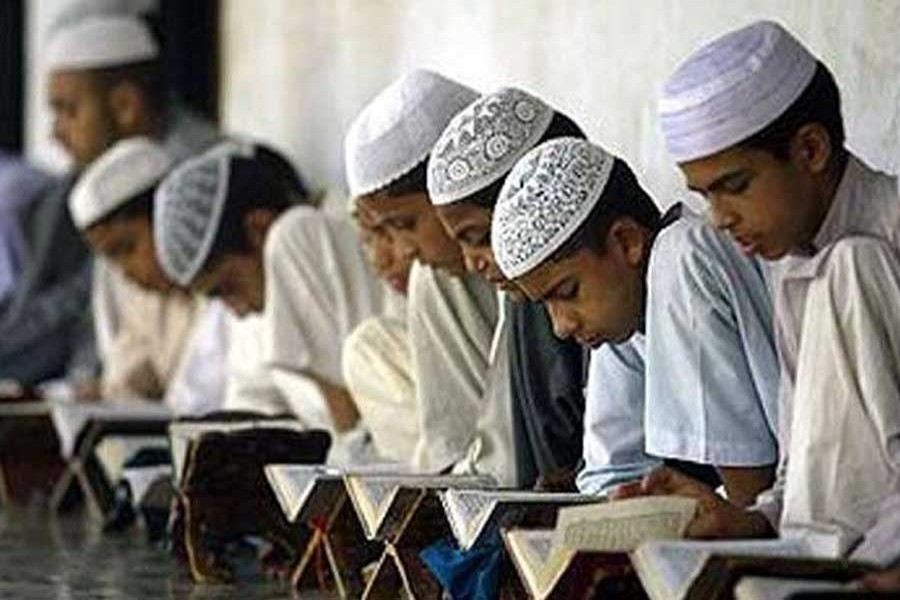Grabbing greater slice of ME job markets
BD to bank on Madrasa teachers' Arabic skills

Published :
Updated :

The government is now aiming to train thousands of Madrasah teachers in information and communication technology (ICT) and modern Arabic to increase their employability overseas, especially to tap further the Middle East job market.
The Ministry of Education has recently chalked out a project, under which 19,200 Madrasah teachers will receive ICT training.
Special communicative Arabic courses will be offered to 9,600 others nationwide.
The total cost of the project has been estimated at around Tk. 2.81 billion (281 crore).
Out of this amount, Tk. 1.41 billion (141 crore) would be available from the government and the rest would come from overseas sources, officials concerned said.
Economic Relations Division (ERD) officials said they were reaching out to donor countries in the Middle East to get the necessary foreign funding support for the project.
"We have already sent a letter to the Sheikh Zayed Bin Sultan Al-Nahyan Trust of the United Arab Emirates asking them to fund the project. We are hoping to get a response from them very soon," ERD Additional Secretary Mohammad Shamsul Alam told the FE.
Earlier, the ERD officials had turned to the Saudi Arabian government for the funding but received no response from them.
Madrasah education has been there in Bangladesh for centuries.
But recently there have been growing calls for reforming the Islamic religion-based education system to make it suit the present-day job demand.
Madrasas or Muslim religious schools in the country are often constrained by infrastructural problems.
Students and teachers of those schools also face restricted job opportunities, say insiders.
Arabic-speaking Middle Eastern countries are overwhelmingly the biggest source of overseas jobs for Bangladeshis.
Data from the Bureau of Manpower, Employment and Training (BMET) show that more than 11.4 million Bangladeshis found jobs overseas during the period between 1976 and 2017, more than 80 per cent of whom went to the Middle Eastern countries.
Saudi Arabia alone has been the source of employment for almost 30 per cent of Bangladeshi expatriate workers during this period.
The United Arab Emirates, another Arabic-speaking Gulf nation, has employed 20 per cent of them.
Most of the Bangladeshi workers going to the Middle East, however, are unskilled and semi-skilled labourers.
The majority of the Bangladeshi workers lack the Arabic language skills as well as technical and professional knowhow, which have often been cited as a major hindrance for Bangladesh to tap further the Middle East job market.
"We believe that with appropriate training, madrasah teachers can be good candidates for Middle East job market", said Md. Shamsul Alam of the Bangladesh Bureau of Educational Information & Statistics (BANBEIS).
"Madrasah teachers in our country usually have very solid foundation for traditional Arabic," he added.
However, if these teachers are trained in modern communicative Arabic and ICT, they will be able become more employable in the Middle East job market which will ultimately enhance the overseas remittance flow", said Mr Alam.
His organisation would be the main implementing agency of the project.
Apart from training of the teachers, smart classrooms will be established in 560 senior madrasas while around 120 thousand madrasah students will be trained in basic ICT, computer training and internet under the proposed project, officials said.
According to statistics from BANBEIS, there were a total of 9,303 madrasas in Bangladesh at the end of 2017, ranging from the Dakhil level to Kamil.
A total of 144,927 are teachers employed in these madrasas while the total number of students studying there is around 3.8 million.


 For all latest news, follow The Financial Express Google News channel.
For all latest news, follow The Financial Express Google News channel.